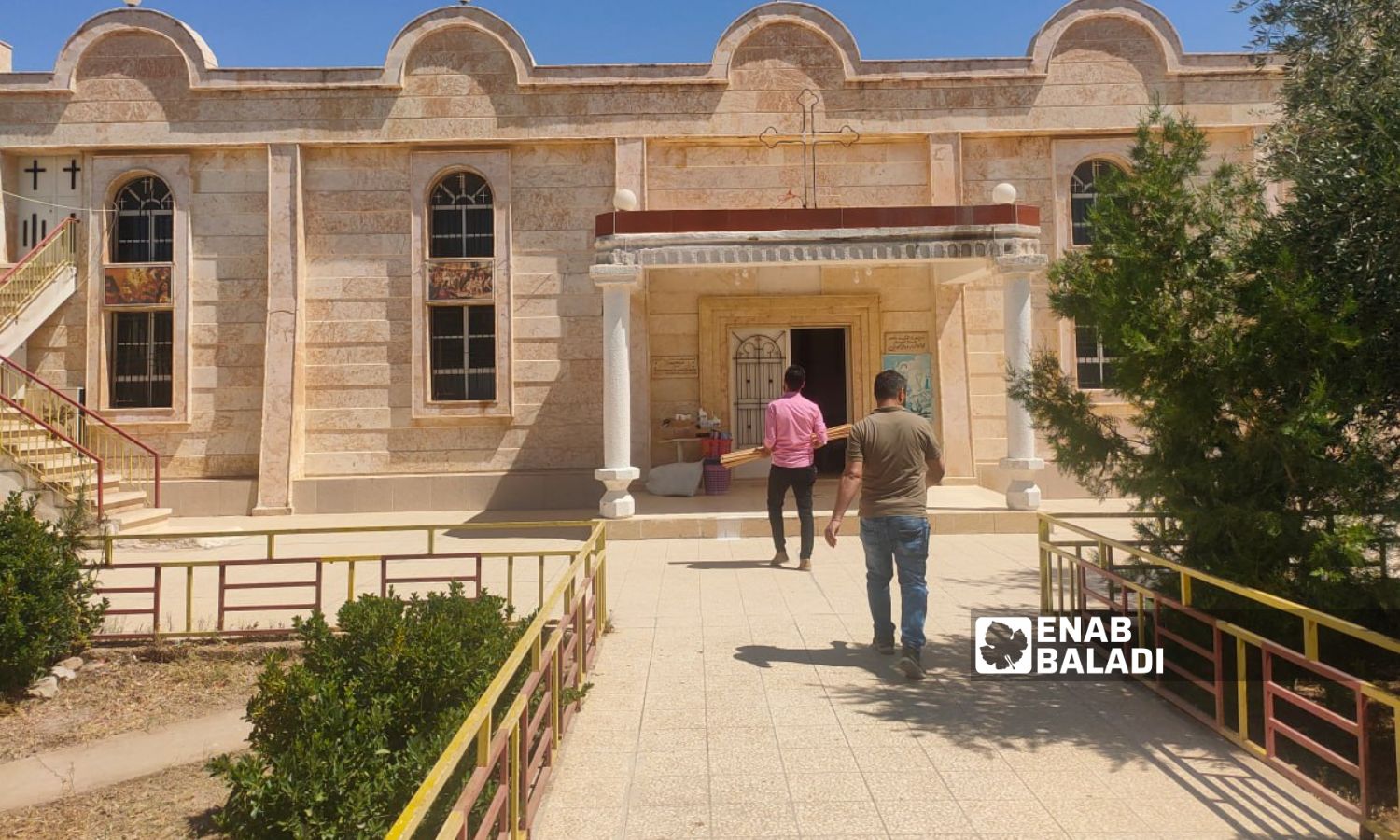



Al-Hasakah – Majd al-Salem
The deteriorating security and living conditions have affected the historic presence of the Christian community in the northeastern region amidst an increasing emigration movement of Syrian Christians.
Buildings of several floors became dark concrete blocks at night and lifeless during the day after their owners abandoned them and traveled abroad in different ways.
Issa, 56, of Arbawiyyah neighborhood in the Qamishli city (asked to withhold his full name), told Enab Baladi that ten years of war had prompted hundreds of Christian families to emigrate from the city and seek a new haven “at any cost.”
Issa has four children, three of whom emigrated with their mother, while he stayed with his daughter, who is taking the high school exam this year, waiting for the exams to end in order to join the rest of his family who preceded him to Sweden two years ago.
Issa considers himself to be financially prosperous, but what drives him to flee with his family is the lack of a sense of security.
The desire for stability and security is the main reason for the decision of many Christians to emigrate to search for a broader horizon in a new land and a safer environment where they can rebuild their lives and secure a better future for their children.
There are no official numbers or data available about the number of Christians in the northeastern region.
A report published by the Catholic charity “Aid to the Church in Need” revealed, in November 2022, that Christians in Syria are currently suffering from increasing oppression and persecution more than they were when it was controlled by the Islamic State (IS) group over vast areas of the country before 2017.
According to the report, the number of Christians in Syria decreased over a decade from one and a half million (10% of the population) before 2011 to about 300,000 until November 2022 (less than 2% of the population).
Hanna Elias, 50, from the Assyrian neighborhood in the city of Qamishli, told Enab Baladi that dozens of families used to sit in front of their Arabic-style houses or bunk buildings in the evening and at sunset, drinking coffee and tea and exchanging conversations in an old custom from decades ago.
However, the changes that took place in the region partially deprived the people of this habit.
Elias added that a small number of residents in Christian-majority neighborhoods, such as al-Wusta and Assyrian, maintain this habit while the houses were vacated of their owners and their doors were closed.
The situation seems bleaker for the Christian villages scattered in the southern and eastern countryside of Qamishli, on the banks of the Khabur River, and in the countryside of the city of al-Malikiyah.
Entire villages were emptied of their inhabitants, and their owners left to settle in the main cities of the province after the security threats that affected their existence when the Islamic State controlled vast swathes from the southern countryside of Qamishli all the way to the Iraqi border, and some of them left the villages and became refugees in a European country.
Years of IS fighting in northeastern Syria, before its defeat in its last strongholds in Deir Ezzor 2019, the eastern region witnessed harassment of Christians, like other members of the Syrian people.
The Christian community was subjected to many attacks, most of which IS claimed responsibility for, and the churches were converted into military headquarters, and their property was confiscated.
For her part, Christine Sabri, 29, said, “It has become difficult for me to fulfill my dream of studying civil engineering in Syria, in light of the difficult conditions that Syrians face, including the lack of job opportunities and the poor living and security conditions.”
“I could not complete my university studies because of the financial situation, which prompted me to stop studying and travel with my family to Sweden, and now I am a lecturer at the university,” Sabri added.
Although the migration is not limited to Christians, the migration of Christians from rural areas appears clearly with the almost complete emptying of villages and towns of their inhabitants and the dwindling of one of the components of the Syrian demographic and cultural diversity.
if you think the article contain wrong information or you have additional details Send Correction